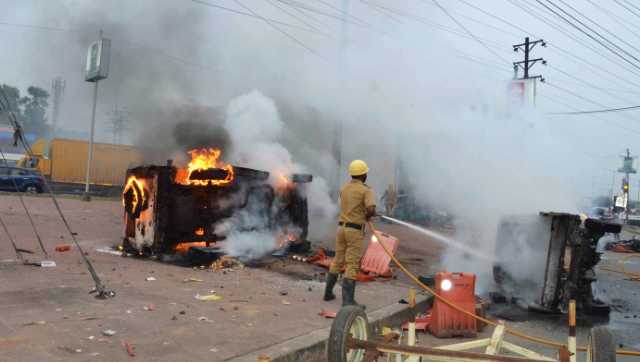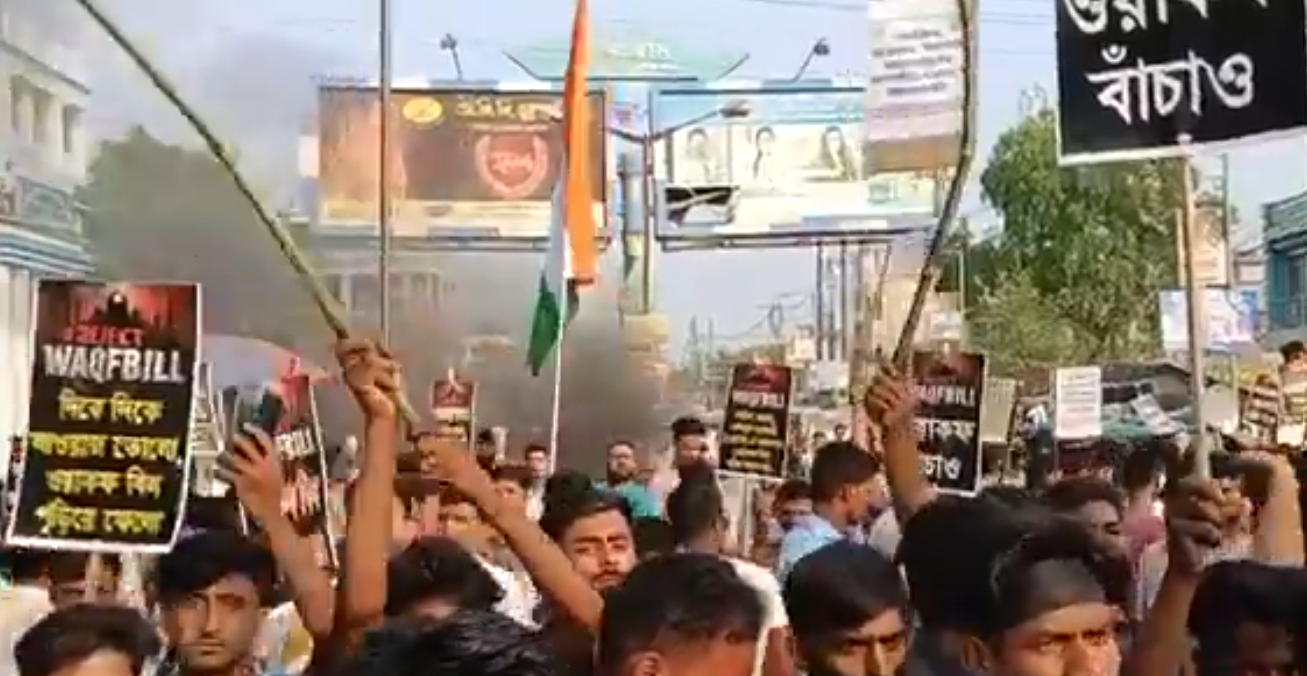-
Violence in Murshidabad: Protests against the Waqf Act turned violent, leading to arrests and internet suspension.
-
Reasons Behind Protests: Misinformation about a protester's injury sparked unrest, reflecting concerns over the Act's implications.
-
Government Response: Authorities used force to control the situation and imposed prohibitory orders.
-
Broader Implications: The incident highlights the need for dialogue and sensitivity in implementing governance reforms.
In recent days, the Murshidabad district of West Bengal has been at the center of a significant controversy surrounding the Waqf (Amendment) Act. Protests against the legislation turned violent, leading to the arrest of 22 individuals and the suspension of internet services in the area. This article aims to provide an overview of the events, the reasons behind the protests, and the broader implications of the Waqf Act.


The Waqf (Amendment) Act
The Waqf (Amendment) Act is a piece of legislation aimed at improving the management of Waqf properties, which are assets donated by Muslims for religious or charitable purposes. The Act seeks to enhance transparency in property management, streamline coordination between Waqf boards and local authorities, and protect stakeholders' rights. It also includes provisions to safeguard heritage sites and promote social welfare.
The Protests in Murshidabad
On Tuesday, a rally was organized in Jangipur, Murshidabad, to protest against the Waqf Act. The situation escalated when a rumour spread that a protester was seriously injured or had died during clashes with the police. This misinformation sparked widespread unrest, leading to violence and the vandalization of police vehicles. The protesters blocked National Highway 12, demanding the withdrawal of the legislation.

Response by Authorities
In response to the violence, the police took swift action to restore order. Tear gas shells were used, and the crowd was lathi-charged to control the situation. Prohibitory orders were imposed in and around Raghunathganj and Suti police station areas to prevent further disturbances. Internet services were suspended across the district to prevent the spread of misinformation.
Twenty-two individuals were arrested in connection with the violence, and a large contingent of police was deployed to maintain peace in sensitive areas. The situation has since been reported as calm and peaceful, with no untoward incidents reported.
Understanding the Protests
The protests in Murshidabad highlight the complexities surrounding the Waqf Act. While the legislation aims to improve governance and transparency, some communities may view it as an interference in their religious and cultural practices. The spread of misinformation during the protests underscores the challenges faced by authorities in managing public perceptions and maintaining order.

Broader Implications
The Waqf Act is part of a broader effort to modernize and streamline the management of religious and charitable assets in India. However, such reforms often face resistance due to concerns about cultural and religious autonomy. The situation in Murshidabad serves as a reminder of the need for effective communication and dialogue between policymakers and community leaders to address these concerns.
Conclusion
The violence in Murshidabad over the Waqf Act reflects the challenges of balancing governance reforms with community sensitivities. As India continues to evolve its legal framework to meet modern needs, it is crucial to ensure that such changes are communicated clearly and implemented sensitively. The suspension of internet services and the imposition of prohibitory orders are measures aimed at maintaining peace, but they also highlight the importance of addressing the root causes of unrest through dialogue and understanding.

In the coming days, it will be essential for authorities to engage with local communities to build trust and ensure that any future protests remain peaceful. The Waqf Act, like other reforms, must be implemented in a way that respects the rights and concerns of all stakeholders involved.
What's Next?
As the situation in Murshidabad returns to normal, the focus will shift towards rebuilding trust and ensuring that future protests are peaceful. This will require effective communication between policymakers and community leaders to address concerns about the Waqf Act and similar reforms. The long-term success of such legislation depends on its ability to balance governance needs with community sensitivities.
With inputs from agencies
Image Source: Multiple agencies
© Copyright 2025. All Rights Reserved Powered by Vygr Media.























